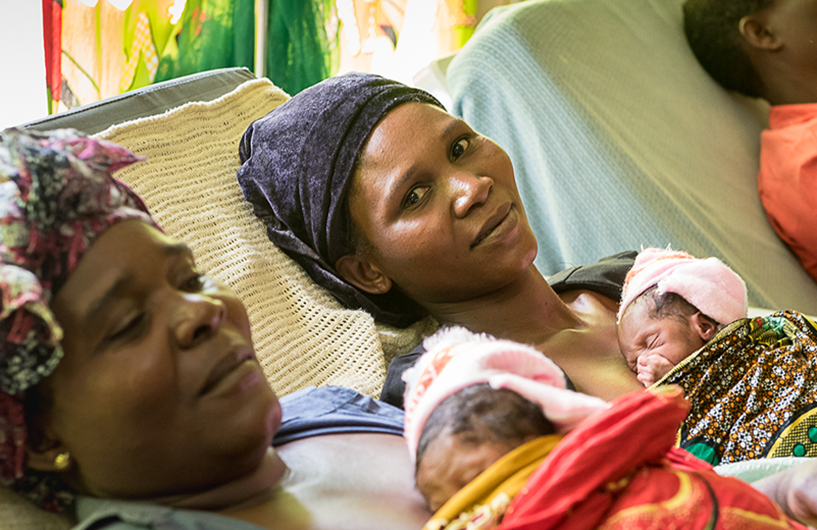ONSE Health Activity in Malawi Commemorates World Prematurity Day
ONSE Health Activity in Malawi Commemorates World Prematurity Day

“There is a great joy when the family comes back to hospital wanting to show that their less than 1500g baby has now grown into a healthy newborn with no trace that they were premature. Sometimes we meet parents in the market place who keep appreciating our efforts in saving their premature babies… I appreciate it so much when babies are born in hospital so care can be initiated as soon as possible.”
Chelmsford Gondwe, Registered Nurse Midwife
The USAID-funded Organized Network for Everyone’s Health (ONSE) Activity and lead implementer Management Sciences for Health joined the world to commemorate World Prematurity Day on November 17, 2019. This global movement seeks to raise awareness about prematurity, calling for the participation of everyone in the prevention and care of small and sick newborns to avert deaths. This year’s celebrations were under the theme “Born Too Soon: Providing the right care, at the right time, in the right place.”
Globally, approximately 15 million babies are born preterm each year, accounting for approximately 10% of all births. Complications of prematurity lead to nearly one million deaths each year. In Malawi, 18.1% of all babies are born premature, and complications of prematurity account for 33% of newborn deaths in the country. Collaboration and partnership are key to addressing this. Joint efforts by the Ministry of Health and Population, public and private health facilities, donors, partners, communities, families, human rights protection groups, and the media are needed to prevent and manage premature births and to ensure that premature babies and their families are provided good care and support in health facilities, in their communities, and in their own homes. These efforts can enable Malawi to reach the Every Newborn Action Plan target, which is to reduce neonatal mortality by 50% by 2035 from the baseline rate of 31/1,000 live births in 2013.
Through the ONSE Health Activity, USAID supports the Government of Malawi’s efforts to ensure that premature infants are identified early and initiated on the right care to promote growth and reduce the risk of complications, including infections. The project works with Malawi’s Ministry of Health and Population to strengthen the capacity of health providers to provide high-quality care before, during, and after childbirth. Between October 2018 and September 2019, the project built the capacity of 254 health providers across 11 districts through mentorship, supportive supervision, and coaching to provide high-impact interventions for premature babies, such as kangaroo mother care (KMC) using the Family Led Care model. With this support, 5,789 premature babies were discharged from hospitals in ONSE-supported districts, and KMC using the Family Led Care model was scaled up to 166 facilities. Through community platforms such as Community Health Action Groups, Champion Communities, and care groups, families are empowered to adopt healthy behaviors that can help prevent prematurity and manage care for preterm babies, including nutrition and KMC.
“Premature babies who have been put on KMC have a high chance of survival. We have admitted babies as low as 800g [who] have successfully been discharged from the KMC program. What is critical is feeding, maintaining skin to skin, preventing infections, and supporting the families,’’ says Flemings Kayira, a Nurse Midwife at Bwaila Hospital.
The project’s efforts also build the capacity of providers to ensure that quality services are provided to families in hard-to-reach areas. This includes routine immunization to help preterm babies build immunity against common childhood illnesses and family planning to prevent frequent births, one of the risk factors for prematurity. With project support, more facilities are now equipped with essential equipment such as oxygen concentrators, phototherapy machines, calibrated feeding cups, feeding syringes, and job aids to support providers in the provision of care.
In the week following World Prematurity Day, ONSE supported districts in Malawi raised awareness through health education in antenatal clinics and outpatient departments about prematurity, including making the public aware that premature babies are human beings and they too thrive and grow when they receive love, care, and support. It is expected that through raising awareness, myths about prematurity will be corrected and families and communities will know their roles in the survival of premature babies and will demand the right care. It is also anticipated that health workers’ commitment to saving premature babies will increase. About 3,000 people are targeted to be reached through this awareness campaign.